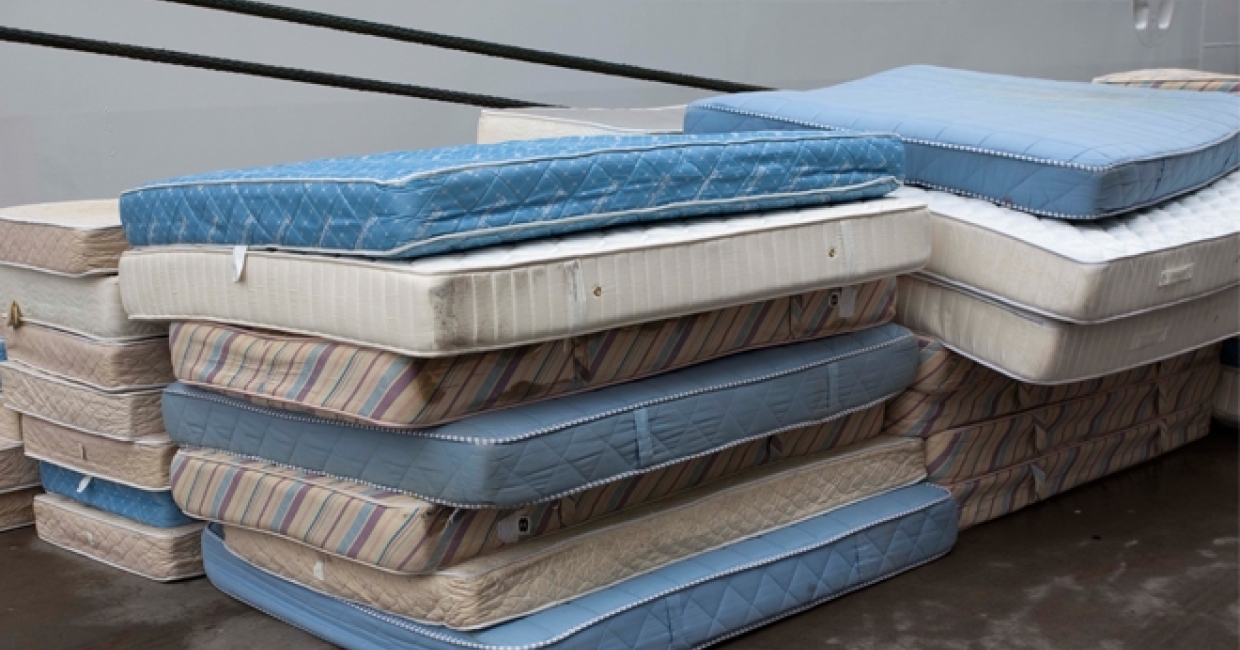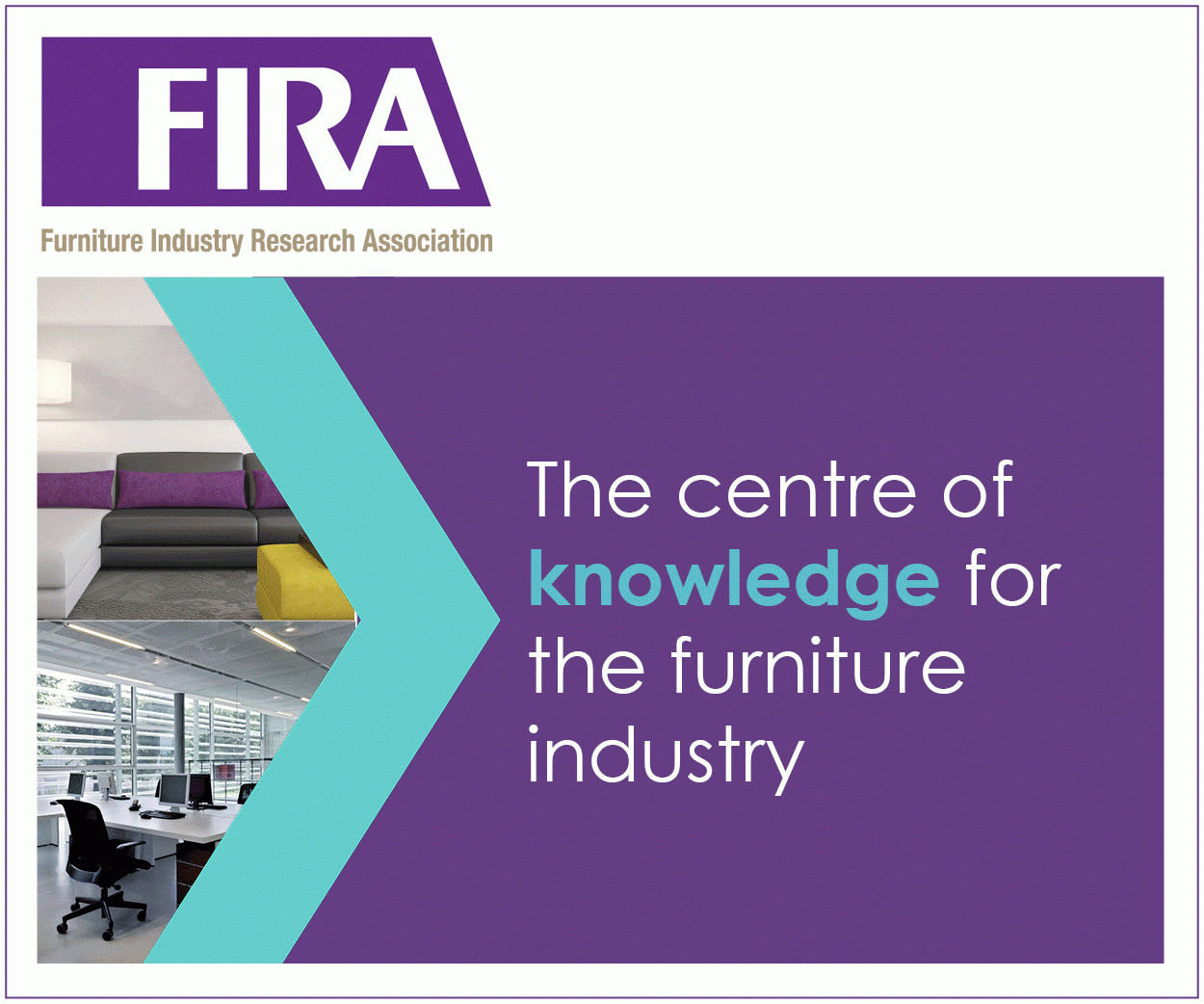Nick Oettinger from The Furniture Recycling Group, comments on obligations to recycle bulky waste and how the circular economy model presents an alternative to landfill...
It can often be a difficult task to remove, transport and dispose of mattresses from properties and figures show that in the UK, only a small percentage of mattresses are recycled responsibly, with 7.5m discarded to landfill sites – usually the cheapest, quickest option.
From a policy point of view, end of life (EOL) mattresses have long been perceived as a problematic waste product, not least because of their size and cumbersome nature. Difficult to handle, mattresses fall under the category of bulky waste; awkward to manoeuvre, expensive to transport and breakdown. All in all, a chore to recycle and as a result, fewer than necessary are disposed of in this way within the furniture industry.
Every year in the UK we throw out around 1,600,000 tonnes of what is defined as bulky waste. Approximately 19% of this falls into the textile category, largely made up of sofas and mattresses, with the majority of items being sent to landfill instead.
Despite landfill tax having pushed up the cost of putting rubbish in the ground in the last 10 years, it remains arguably the cheapest and most straightforward option for bulky waste. However, the UK is experiencing an over dependence on landfill. Due to the worrying impact this over dependence has on the environment, bans have already been imposed in many EU countries, with Governments and policy makers realising that alternative, more environmentally friendly solutions are required if countries are to meet their carbon footprint reduction obligations.
With regards to mattresses in particular, an on-going European Union Waste Management Policy Review Process may soon affect UK Government policy on mattress recycling, with the bed industry, and those connected with it, such furniture businesses, set to face - at some stage - a legislative requirement to dispose of EOL mattresses in an environmentally acceptable way.
Headway is already being made, with statistics showing that in the UK 450,000 mattresses were collected for recycling in 2012 and just a year later, this had increased by 30%, but despite the increase, this still only accounts for a small percentage of the total mattress disposal in the UK.
While on the surface, the reasons for this slow evolution and widespread acceptance of mattress recycling among the furniture sector are largely cost associated as there is no doubt that landfill remains the cheaper option, other barriers do exist. These include the lack of outlets and services that could help businesses dispose of mattresses, as well as the uncertainty around the design and composition of mattresses to recycle their components.
Spotting a gap in the market as well as a clear environmental demand for a solution to this problem, The Furniture Recycling Group perfected a dismantling process, which separates the 14 different material types. Using specially designed tools, the ticking, comfort layers and insulator pads are removed separately ensuring no cross contamination of fibres. Stitching and staples are also removed. This process is manual, as currently, no machine in the world can accurately separate the likes of cotton polyester mix from denim polyester mix. Our highly trained staff work across two material handling points to ensure that contamination is minimised. We have perfected our manual processes, providing accuracy of segregation of recyclate with excellent throughput due to our handling and material movement system.
Once we cracked this, our main activity was to source sustainable outlets for all of the materials generated.
Having already recycled 700,000 mattresses since launch, The Furniture Recycling Group has identified both a social and business case for partner industries in the furniture sector to take notice of their responsibilities regarding mattress disposal. We offer organisations the chance to put in place a policy, ensuring they are best placed to respond to any new legislation that comes into force, or perhaps to be seen and credited as leaders and trailblazers in the industry – paving the way for responsible business practice and advocates of the circular economy.
We are keen to work with partners in the furniture sector to draw on the principles of a circular economy – where resources are recovered and recycled back into new resources – to educate and inform on the benefits of making good on old mattresses.
It is our vision that the UK’s end of life mattresses be turned back into the very products they were – increasing environmental sustainability and tackling the landfill problem.
With over 700,000 mattresses recycled so far, The Furniture Recycling Group has an average recycling rate of 96 per cent, with the remainder going to energy from waste providing 100% landfill diversion.







